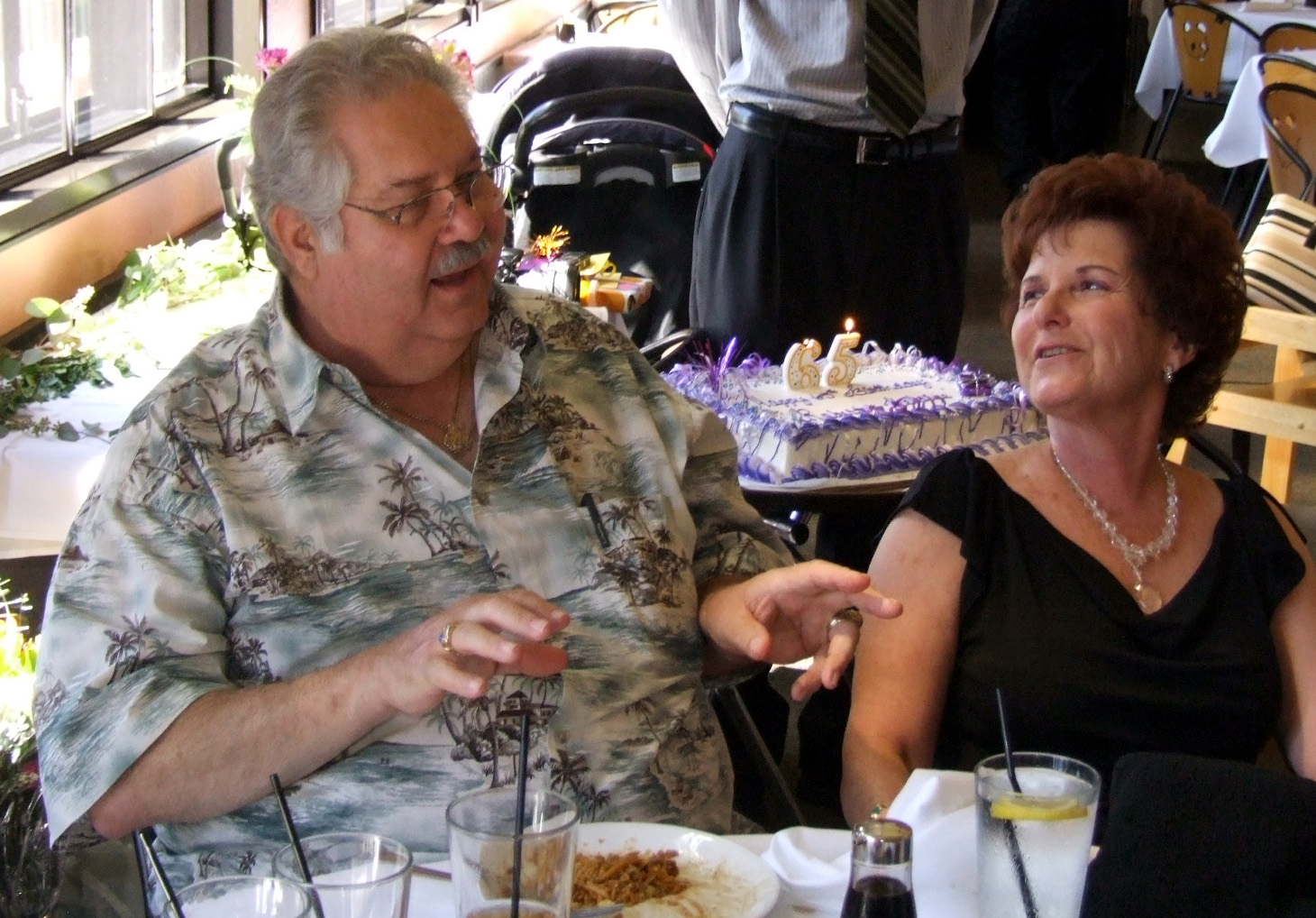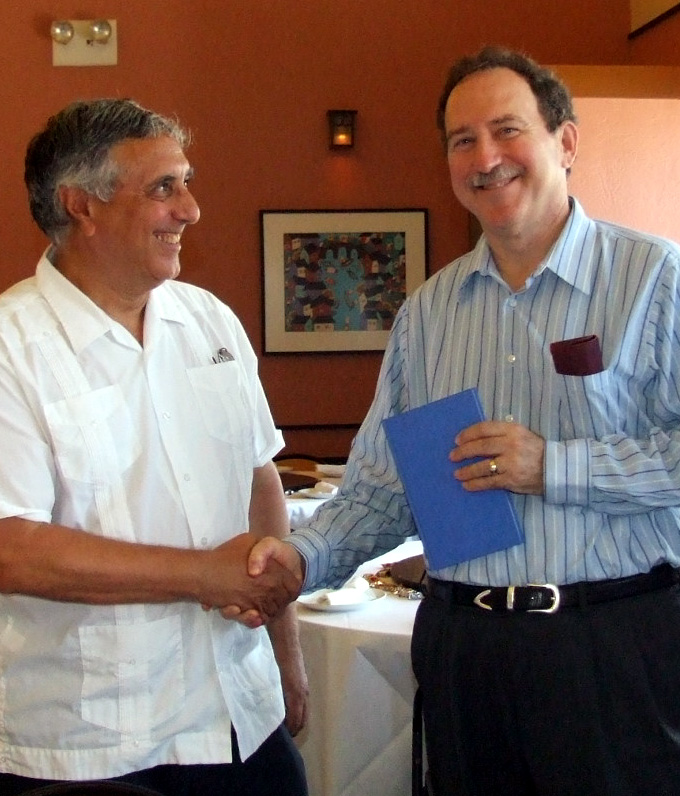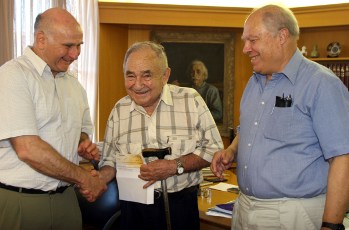Study finds world media turned against Israel after air attack on Qana during the 2nd Lebanon War
COLLEGE PARK, Maryland (Press Release)—A study released by the University of
Maryland this month concluded that world news coverage of the Second
Lebanese War flipped from pro-Israel to either neutral or anti-Israel
following the July 30 air attack on Qana, Lebanon, by Israel Defense Forces.
The report said the attack was a “pivotal moment” because it left 27
civilians dead and changed world opinion on the conflict. "Following the
Israeli attack on the Lebanese town, the press became less critical of
Hezbollah and more neutral over all. This was the "Qana-effect" on news,
according to the study's project director
Jad Melki, research director of the International Center for Media and
the Public Agenda (ICMPA) at the University of Maryland, which conducted the
study. Melki also is a visiting journalism professor at Towson University.
Three other events registered as significant in the coverage: August 12, the day the UN Security Council adopted resolution 1701; July 20, a day of unprecedented violence and bloodshed on both sides; and July 25, the day following an Israeli air strike that killed three UN peacekeepers in south Lebanon. Four out of the five events impacted the coverage in a way that worked against Israel and in Lebanon's and Hezbollah's favor. "By the end of the war in mid-August, the press declared Hezbollah the winner of the war," Melki said.
ICMPA's study looked at 14 major English-language newspapers from around the world: The Daily Star (Lebanon), Financial Times (UK), Herald Sun (Australia), Irish Times, Jerusalem Post (Israel), Los Angeles Times, Press Trust (India), South China Morning Press, The Guardian (UK), New York Times, The Independent (UK), The Nation (Pakistan), Turkish Daily and the Washington Post.
The study tracked their coverage over time, and additionally ranked them according to authority, depth, source balance, frame balance and empathy.
Overall, the coverage was surprisingly even-handed: one-fifth of the articles analyzed were reported from Lebanon, and another one-fifth were reported from Israel; 46 percent of the articles were critical of Israel, and 51 percent were critical of Hezbollah.
Which were the best? The Washington Post, The Guardian and the Irish Times.
Which were the worst? Perhaps no surprise, The Daily Star (Lebanon), the Jerusalem Post (Israel) and the Turkish Daily - all from the region, and all limited either literally or politically on their ability to station correspondents on both sides of the conflict.
The Washington Post, the Financial Times and the Nation (Pakistan) received the highest scores for balance. The Financial Times scored best on authority (was the coverage first-hand and from the front lines?), and the New York Times had the greatest depth of coverage.
Other findings:
-
Although one out of every five articles mentioned a death toll or listed the number of injured, over 90 percent of failed to identify the casualties on both sides of the conflict even by name, gender or age. The dead and wounded were mere statistics. The papers that had the most empathetic coverage of the victims were the Washington Post, the Los Angeles Times and the Daily Star.
-
Coverage of the fighting and diplomacy dominated the news. Over half of the coverage focused on military operations, international diplomacy and the UN's efforts.
-
The economic and environmental consequences of the war received minimal coverage. Stories about economic damage and hardship received less than 2 percent of the coverage, while stories about environmental damage were only 1 percent of the coverage.
-
About one in every four of the hundreds of articles investigated in the study included references to terrorism - almost always associated with Hezbollah. But after Qana those references decreased.
-
Among the other countries linked to the conflict, Iran received the most critical coverage, followed by Syria, the United States and the UK.
-
Iranian President Mahmoud Ahmadinejad and Hezbollah's Chairman Hassan Nasrallah received the most negative coverage, followed by US President George Bush, UK Prime Minister Tony Blair, Syrian President Bashar al-Assad and Israeli Prime Minister Ehud Olmert. US Secretary of State Condoleezza Rice received the most positive coverage. She was followed by Lebanese Prime Minister Fouad Seniora and Israeli Foreign Minister Tzipi Livni.
This
study on media coverage of war is the most recent report released by the
International Center for Media and the Public Agenda (ICMPA), a center
of the Philip Merrill College of Journalism and the School of Public Policy
at the University of Maryland, College Park.
The preceding story was provided by the
University of Maryland

{Marc Kligman, who combines being a sports agent with his life as an observant Jew, invites you to listen. Click on the ad above for more information}.
WALTHAM, Massachusetts (Press Release)—The university, in conjunction with police and fire officials from the City of Waltham, successfully completed the first tests and drills associated with a new security system that includes the sounding of sirens to instruct people to go indoors should a need to do so arise.
The new tools include the Brandeis Emergency Notification System, which allows transmission of audible public address messages through phone speakers across campus. A message was also displayed on all phone screens to inform the community that testing was underway and, then, that it had been completed at about 1:20 p.m.
University officials thanked everyone who particpated in and cooperated with the Aug. 16 drill, which began at 10:30 a.m.
For the drill, the sirens and notification systems were used, and two buildings, The Heller School/Schneider Institute and the Shapiro Admissions building were evacuated. Individuals in those buildings were directed to evacuation sites: Levin Ballroom in Usdan, and Spingold Theater, respectively. The sirens, all-clear chimes and notification systems were also tested in the drill.
In a real emergency, information will be provided on university telephones (voice and text messages), email, the website (www.brandeis.edu) and via your text messaging option on your cell phone, once it is registered.
The Department of Public Safety at Brandeis, the Office of Communications, and Library Technology Services organized and participated in the security exercise.
Officials issued a reminder that the sounding of the sirens includes a horn to tell people to seek shelter indoors (not to go outside as in a regular fire drill) and the chime indicating that it is safe to go outdoors again.
Planning for the drill was coupled with a review and update of the university's emergency action manual, which, among other critical processes, details the designation of building captains. Most importantly, the manual includes a master document that fully and clearly delineates notification and reporting sequences for a range of possible crises, from natural disasters, to chemical or biological emergencies, to serious criminal acts committed on campus.
The master document includes the names and contact numbers of all school officials who would be brought together immediately to attempt to mitigate any crisis, ensure maximum protection for all students, staff and faculty, and disseminate information both on and off campus. Individuals are matched with certain tasks and have been given specific duties to perform. Those who have been designated to work together as crisis managers include the director of Public Safety, the executive vice president and chief operating officer, the senior vice president for communications, a safety officer who deals with chemical, biological and radiological issues, as well as Brandeis staff members who work directly with students, staff and faculty on a daily basis.
In addition to its own public safety officials, the university has at its disposal all of the emergency resources of the City of Waltham, the state of Massachusetts and, when needed, federal emergency response teams.
The preceding story was provided by Brandeis University
NEW YORK (Press Release)—Dr. Alan Mittleman, professor of Jewish Philosophy at The Jewish Theological Seminary and director of its Louis Finkelstein Institute for Religious and Social Studies, has been named chair of JTS’s Department of Jewish Philosophy. The announcement was made by Dr. Alan Cooper, provost of JTS. Dr. Mittleman succeeds Rabbi Neil Gillman, who retired on June 30 and who will continue to teach part time at JTS.
Dr. Mittleman is the author of
three books: Between Kant and Kabbalah (SUNY Press,
1990), The Politics of Torah (SUNY Press, 1996), and
The Scepter Shall Not Depart From Judah (Rowman &
Littlefield, 2000). A fourth book, Uneasy Allies?
Jewish-Evangelical Relations (Lexington Books) is due out
later this summer.
He is also the editor of Jewish Polity and American Civil
Society (Rowman & Littlefield, 2002), Jews and the
American Public Square (Rowman & Littlefield, 2002), and
Religion as a Public Good (Rowman & Littlefield, 2003).
Dr. Mittleman’s many articles, essays, and reviews have appeared
in such journals as Harvard Theological Review, Modern
Judaism, the Jewish Political Studies Review, the
Journal of Religion, and First Things. He is a contributor
to The Cambridge Companion to American Judaism. His
current project is a book on the philosophical and theological
dimensions of hope in democratic political theory, under
contract with
Oxford University Press.
As director of the Finkelstein Institute, Dr. Mittleman brings
programs at the intersection of religion and public affairs to
JTS and the general community. Since 1938, the Finkelstein
Institute has maintained an innovative interfaith and inter
group relations program that emphasizes conversation among
diverse communities about matters of public significance. It
sponsors conferences on the theoretical, political, and
theological dimensions of the controversial role of religion in
liberal democracies, both in the United States and abroad,
examining issues including the role of virtue in liberal
societies and the place of religion in national self-definition.
The Institute also sponsors conferences on the separation of
church and state and bioethical issues such as stem cell
research and cloning.
Dr. Mittleman served as professor of religion at Muhlenberg
College from 1988 to 2004. He is a member of several learned
societies and is a fellow of the Jerusalem Center for Public
Affairs. From 2000 to 2004, Dr. Mittleman served as director of
the major research project "Jews and the American Public
Square," which was initiated by the Pew Charitable Trusts.
Dr. Mittleman has been an active participant in interfaith
dialogue throughout his career and has been interviewed by
Time, Newsweek, the New York Times, and USA
Today, among other periodicals, and has appeared on Fox
News. He was also part of a leadership delegation that met with
Pope John Paul II. Dr. Mittleman served as visiting professor of
Religion at Princeton University in 2007. He holds a BA from
Brandeis University and an MA and PhD from Temple University.
The preceding story was provided by the Jewish Theological Seminary
Nine women receive YU's Scheiber scholarships to study
at Albert Einstein College of Medicine
NEW YORK (Press Release)—Anne Scheiber, who left $22 million to fund a
scholarship for deserving Stern College for Women students accepted into YU’s
Albert Einstein College of Medicine, would be proud of the women who are
benefiting from her generosity this year. Hailing from across the United States
and from countries including Israel, Canada, and Ukraine, the 2007 recipients of
the Anne Scheiber Scholarship abundantly reflect the donor’s requirement that
the awardees be Stern graduates who plan “to assist in the development of
humanity, and alleviate pain and suffering.”
“It’s an unimaginable dream not to have the burden of loans when pursuing your
career,” said Shulamit Roditi-Kulak ’05S, from Newton, MA. “I've gotten so much
help from Stern, I hope to be able to give something back.”
Before coming to Stern, Roditi-Kulak spent a year in Israel in Sherut Leumi, a
program of volunteer service, working at Shaare Tzedek Hospital. Her exposure
there to the field of pediatric oncology set her on her present course. More
recently, she worked on Einstein’s Institutional Review Board, which protects
the rights of human subjects in research.
Yelena Kozirovsky ’07S, whose family hails from Ukraine, said she feels
“blessed” to have been accepted into medical school. “It’s particularly hard
when you’re an immigrant and you have to start new and build relationships at
school that other students already have,” Kozirovsky said. The biology major,
who has volunteered at the cancer research lab at Beth Israel Hospital, would
ultimately like to work in oncology.
Helen Nissim ’07S developed an interest in both science and medicine while
growing up in Los Angeles and Israel. “I enjoyed the exhilaration that came from
tackling a difficult scientific problem,” she said. After high school she
volunteered in an organization for children with chronic diseases, an experience
that convinced her that medicine was her calling.
Nissim is grateful that, having received the Scheiber Scholarship, she can now
pursue her goal of becoming a physician “and being a productive individual in my
community.”
“With the practice of medicine in so much flux, it is inspiring to know that so
many Stern College women—who possess the intellectual skills to solve problems
and the empathic skills to care for others—are entering the profession,” said
Karen Bacon, PhD, The Dr. Monique C. Katz Dean of Stern. “They can and will make
a difference.”
The scholarship was endowed by Anne Scheiber upon her death in 1995 and started
distributing funds during the 2002-2003 school year. The amounts awarded, which
are based upon financial need, range in value up to full tuition for all four
years of medical school. To qualify, the students also need to show leadership
potential, initiative, or creative excellence and indicate a desire to help
humanity through their studies.
Born in Brooklyn, NY, in 1893, Scheiber paid her way through law school, and
found employment as a federal tax auditor. Throughout her 23-year career, she
received superior performance reviews, but was never promoted, which she
attributed to being Jewish and a woman. When she retired she devoted herself to
investing in the stock market, where religion and gender didn’t matter. She had
an acute understanding of the stock market and an uncanny ability in investing.
“It’s unbelievably humbling to hear the story of Anne Scheiber and how she made
her money, only to give it away to people she would never meet,” said Shulamit
Roditi-Kulak.
This year’s recipients of the Anne Scheiber Scholarship are: Elisheva Levine,
Michelle Simpser, Tehilla Stepansky, Amanda Weiss, Helen Nissim, Ariella
Nadler, Jordanna Platt, Shulamit Roditi-Kulak and Yelena Kozirovsky.
CINCINNATI, Ohio (Press Release)—Philip Angel–whose great-grandmother, grandmother, and mother were pioneers in 20th century social activism in America–has given his expansive compilation of letters, family documents, diaries, and other archival materials documenting the lives and work of his family to The Jacob Rader Marcus Center of the American Jewish Archives (AJA), located on the Cincinnati, Ohio campus of Hebrew Union College-Jewish Institute of Religion. The papers of Hannah Greenebaum Solomon (1858-1942), Solomon's daughter, Helen Solomon Levy (1882-1955), and Levy's daughter, Frances Hannah Levy Angel (1912-2001) attest to their many activities pertaining to social action and social reform in America over a period of more than 100 years.
Hannah Greenebaum Solomon is well known as a founder of the National Council of Jewish Women–an organization created to "further the best and highest interests of Judaism and humanity." To that end, the NCJW organized vocational and industrial classes for immigrant children and sponsored free libraries, employment bureaus, kindergartens, and nurseries. With the great wave of immigrants at the beginning of the twentieth century, the NCJW focused its efforts on caring for incoming single girls. Solomon also worked closely with suffragette Susan B. Anthony. In 1904, they attended the convention of the International Council of women in Berlin. A lifelong crusader for social action and reform, Solomon was involved in forming the Bureau of Personal Service, an organization designed to assist America's new Russian-Jewish immigrants. She also worked with the Illinois Industrial School for Girls in 1905 and became its president in 1907. She was an active member of the Women's City Club; a founder of the Chicago Juvenile Court and a board member of the Chicago Civic Federation.
Helen Solomon Levy established one the country's first day nurseries to assist working mothers–with the help of Jane Addams, founder of America's Settlement House Movement and Chicago's Hull House. In addition to founding the Day Nursery Association, her activities also included leadership in the Women's International League for Peace and Freedom, the Social Service Independent Committee for Political Action, the Chicago Woman's Club, the Chicago Association of Child Study & Parent Education, the Urban League of Chicago and the National Committee on the Cause and Cure of War.
Frances Hannah Levy Angel helped launch the Charleston, West Virginia chapter of the National Council of Jewish Women and was the first Jewish board member of the Charleston YWCA. She helped found the community's Cerebral Palsy Clinic and was one of the first women to become a jury foreperson after juries ceased to be males only in West Virginia in the mid-1950s. She was also involved with the Charleston community's Medical Eye Bank, the West Virginia Opera Theater, the Appalachian Corridors Art Show and a United Nations support group, among many others.
Philip Angel, Frances Hannah Levy Angel's son who compiled the extraordinary collection, believes that "the legacy of these three women is that we are in fact our brother's keeper. We have the chance to do in our own way whatever it is that makes life better for all. We are called to help those who, along with ourselves, make right as opposed to letting wrong perpetuate."
"This new acquisition adds even greater luster to the AJA's remarkable archival holdings on the history of the American Jewish woman," said Dr. Gary P. Zola, Executive Director of the AJA and Associate Professor of the American Jewish Experience at Hebrew Union College-Jewish Institute of Religion. "We are deeply grateful to Philip Angel for entrusting our research center with the responsibility of preserving these precious family papers for posterity."
The AJA's Angel Family collection-which is still being catalogued-is currently organized into four files with more materials still to come from the Angel family:
1. Background and biographical information
2. "The Wellesley Experience," containing letters of Helen Solomon Levy to her parents while a student at Wellesley College, 1901-1902
3. "European Trip," a diary kept by Hannah G. Solomon during a 25th wedding anniversary trip to Europe
4. "Our Love Story," an extended letter from Helen Solomon Levy to her husband, Emile Levy, recounting their courtship, 1912
To find out more about the Angel Family collection at The Jacob Rader Marcus Center of the American Jewish Archives, please visit www.americanjewisharchives.org.

Click the ad above to go to the "I'm there for you baby" website
The Jewish Grapevine

|

 FEMALE
CANTORS—CJ,
the magazine of Conservative/ Masorti
Judaism has a feature in the current
issue in which female cantors discuss
some of their experiences. One of those
writing in the first person is
Cantor Alisa Pomerantz-Boro,
formerly of Tifereth Israel Synagogue in
San Diego and currently at Congregation
Beth-El in Cherry Hill, New Jersey.
She tells of women and girls in the
congregation tentatively and then later
trying on tefillin and "now it is as if
it has always been that way....Recently,
I was talking ot a bright and talented
boy with a magnificent voice who comes
to synagogue every Shabbat. When I
suggested that he might consider
becoming a hazzan one day, he asked,
'Can a boy be a hazzan too?'"
FEMALE
CANTORS—CJ,
the magazine of Conservative/ Masorti
Judaism has a feature in the current
issue in which female cantors discuss
some of their experiences. One of those
writing in the first person is
Cantor Alisa Pomerantz-Boro,
formerly of Tifereth Israel Synagogue in
San Diego and currently at Congregation
Beth-El in Cherry Hill, New Jersey.
She tells of women and girls in the
congregation tentatively and then later
trying on tefillin and "now it is as if
it has always been that way....Recently,
I was talking ot a bright and talented
boy with a magnificent voice who comes
to synagogue every Shabbat. When I
suggested that he might consider
becoming a hazzan one day, he asked,
'Can a boy be a hazzan too?'"
FUNDRAISER—There was a time in
California's past when the thought of
someone gambling on a ship would cause
whistles to blow, officers to call
through bullhorns, and occasionally,
passengers to jump overboard with their
illegal gaming profits. How times
have changed. There's a gambling
cruise coming up that just as you lay
down your bet, you're liable to have
Sheriff Bill Kolender looking over
your shoulder... and wishing you luck!
On Thursday evening, September 20, the
sheriff and his wife Lois will
host Casino Royale night aboard the
Hornblower yacht Inspiration.
Guests will board at 5:30 p.m., depart
the pier at 7 p.m. and return at 9:30
p.m., during which time they'll have
dinner and gambling. Oh, but
there's a catch. All the proceeds
of this gambling night go to a charity,
most specifically the Sheriff's Museum
and Educational Center.
 Robert & Helaine Baum |
SIMCHA—Members of their
Congregation Beth Israel
chavurah,
neighbors, friends and, of
course, family members
were on hand today for a
luncheon saluting
Robert & Helaine Baum,
who were celebrating their 44th
wedding anniversary as well as
nearby birthday dates.
Former San Diegan Sharon
Thomas flew in from Texas to
be present for the celebration
which was held in the back room
of the Panda Inn at Horton
Plaza. |

TITLE PAGE—Only 600 copies of
the late Norton B.Stern's work on
19th century efforts to find a
homeland
for Jewish refugees on the Baja
California peninsula of Mexico.
Sunbelt Publications donates
discovered volume
to Jewish Historical Society for its
archives
Diana Lindsay, co-owner of Sunbelt with her husband Lowell, said during a recent inventory of the warehouse a slim blue volume was found to have slipped behind other books. It turned out to be the 69-page Baja California: Jewish Refuge and Homeland, a 1973 study by the late historian Norton B. Stern about efforts during the 19th century to provide a place for the settlement of Jewish refugees in Baja California.
The Lindsays contacted San Diego Jewish World publisher Donald H. Harrison, whose own book, Louis Rose: San Diego's First Jewish Settler and Entrepreneur, they had published in 2005. Was there an appropriate place to donate the book?
 |
PRESENTATION—Al Kohn, first
vice president of the Jewish
Historical Society of San
Diego, right, accepts book
on Baja California and the
Jews by historian Norton B
Stern presented in behalf of
Sunbelt Publications by
Donald H. Harrison, left,
publisher of the San
Diego Jewish World. |
Harrison recommended the Jewish
Historical Society of San Diego,
which maintains a library collection
as well as archives donated by
Jewish organizations and families of
San Diego. The archives are housed
in the Snyder Reading Room of the
Malcolm Love Library on the campus
of San Diego State University.
Today, Harrison presented the
once-lost, still-mint-condition
volume in behalf of Sunbelt
Publications to Al Kohn, first vice
president of the Jewish Historical
Society of San Diego.
(Return to top)
Hebrew
classes offered for tykes—and their
parents
SAN DIEGO (Press Release) –
Applications are now being accepted
for Kef Li San Diego’s Ivrit b'
Ivrit (Hebrew to Hebrew) program for
children 2-8 and their families who
want to learn conversational Hebrew.
The program runs on Monday and
Wednesday afternoons between 3:30
p.m. and 5:30 p.m. at Congregation
Beth El in La Jolla, and will be
offered in March in Carmel Valley.
Organizer Jennie Starr explains, “We
use a curriculum designed by
educators in Israel and our
experienced Israeli teachers
supplement it with additional games
and songs they have found to be
successful. “
She added that the “lesson plans revolve around daily life vocabulary infused with Israeli culture and celebration of the Jewish holidays. Emphasis is on conversational skills.”
There are two different tracks within the programs. For children between the ages of 3 and 6, there are classes taught by experienced pre-school teachers, with a limit set of six children per class. Or children ages 2-8 may enroll with a parent in classes with three other families.
“This program is ideal for Israelis who are speaking Hebrew at home, but struggling with children who prefer to answer in English,” said Starr, a volunteer who organized the program. “Also for families in which one parent speaks Hebrew and the other may not. And it is especially good for anyone eager to teach their children Hebrew as a spoken language in a fun, creative environment.”
Starr said similar Hebrew camps are being conducted from Aug. 20 through Aug. 31 for children in the 2-3 age bracket and the 4-5 age bracket. Information on all the programs may be obtained from Starr at (858) 245-9375, or by visiting this linked website.
The preceding story was based on material provided by Kef Li San Diego













